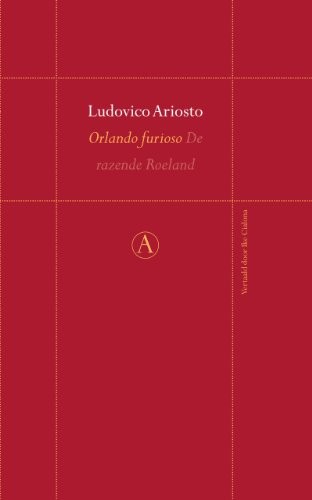Ludovico Ariosto (Italian: [ludoˈviːko aˈrjɔsto, - ariˈɔsto]; 8 September 1474 – 6 July 1533) was an Italian poet. He is best known as the author of the romance epic Orlando Furioso (1516). The poem, a continuation of Matteo Maria Boiardo's Orlando Innamorato, describes the adventures of Charlemagne, Orlando, and the Franks as they battle against the Saracens with diversions into many sideplots. The poem is transformed into a satire of the chivalric tradition. Ariosto composed the poem in the ottava rima rhyme scheme and introduced narrative commentary throughout the work. Ariosto also coined the term "humanism" (in Italian, umanesimo) for choosing to focus upon the strengths and potential of humanity, rather than only upon its role as subordinate to God. This led to Renaissance humanism.
Ludovico Ariosto
Author details
- Aliases:
-
Ludoviko Ariosto, L. Aryosto, Ludovico Arioste, and 57 others
Ludovico Ariosti, Ludwig Ariosto, Лодовико Ариосто, L. Ariosto, Aldvigh Ariost, Ludwig Ariost, Oratio Toscanella, Joseph Tuchemolin, Louys Arioste, Loys Arioste, アリオスト, Ludovico, ലുഡോവിക്കോ അരിസ്റ്റോ, Ludovic Arioste, ルドヴィーコ・アリオスト, 阿里奥斯托, Lodevico Ariosto, Λοντοβίκο Αριόστο, Lodouico Ariosto, Ludovic Ariost, Ludovico Ariost, 루도비코 아리오스토, Ludovicus Ariostus, ಆರಿಯೋಸ್ಟೊ, לודוביקו אריוסטו, Ludovicus Areostus, Ariost, Aryosto, L'Arioste, Լուդովիկո Արիոստո, Ariosti, Ludowik Aryost, Ludwik Aryosto, Lodoviko Ariosto, Лудовико Ариосто, Ludowik Aryosto, Ludwik Ariosto, Joseph Dousmolin, Joseph Touchmolin, Lodovico Ariost, لودوویکو آریوستو, Lodovico Ariosti, Ludovico Ariosto, Ariosto, لودوفيكو أريوستو, Lodevico Aristo, Oratio Toscanello, Lodovico Ariosto, Lûdoviko Ariosto, Лудовіко Аріосто, Ариосто, Arioste, Ludouico Ariosto, Lodovico, Louis Arioste, Luduvicu Ariostu, L' Arioste - Born:
- Sept. 8, 1474
- Died:
- July 6, 1533
External links
Ludovico Ariosto (Italian: [ludoˈviːko aˈrjɔsto, - ariˈɔsto]; 8 September 1474 – 6 July 1533) was an Italian poet. He is best known as the author of the romance epic Orlando Furioso (1516). The poem, a continuation of Matteo Maria Boiardo's Orlando Innamorato, describes the adventures of Charlemagne, Orlando, and the Franks as they battle against the Saracens with diversions into many sideplots. The poem is transformed into a satire of the chivalric tradition. Ariosto composed the poem in the ottava rima rhyme scheme and introduced narrative commentary throughout the work. Ariosto also coined the term "humanism" (in Italian, umanesimo) for choosing to focus upon the strengths and potential of humanity, rather than only upon its role as subordinate to God. This led to Renaissance humanism.
